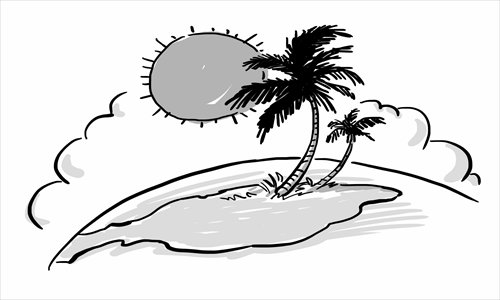Malaysia sets democratic example in SE Asia

Malaysia's 13th general election ended Sunday. The election was considered by many as the most hotly contested yet, but it proceeded smoothly.
The country's election was somewhat similar to the one in Thailand in 2011. Both reflected the overall maturity and stability of democratic politics in Southeast Asia.
There were two notable aspects in the latest election in Malaysia. One is that the election was a contest between two main factions. Although some other small parties took part as well, they were far from decisive.
Each of the main factions is comprised of different parties. The ruling Barisan Nasional is comprised of 13 parties, and the opposition, the People's Alliance, is a three party-led alliance. The two compete with and balance each other, and the country's political geometry and rules have changed fundamentally.
The other notable aspect is that the political doctrines for which the two factions won votes are quite similar. The public is demanding the speeding up of economic development, the curbing of corruption and the reforming of discriminatory ethnic policies.
Meanwhile, as people's political awareness has grown, social media has been widely used in this election, and as a result voter turnout reached 80 percent.
Any observation of the Malaysian election should not ignore the composition of the country's ethnic groups.
Malaysia has a population of 29 million, 55 percent of which are Malaysian Muslims who have played an important role in the country's political traditions, especially legal systems.
Meanwhile, Malaysia is a multi-ethnic federal constitutional elective monarchy, with the Malays, Chinese and Indians as the main ethnic groups.
For a long time, the bumiputra (native Malays) have taken a dominant position in the country's politics, and some policies considered discriminatory to other ethnic groups have been issued. The ethnic Chinese are particularly discontent with it.
Many members of the Chinese elite thus went abroad, resulting in the stagnation of the Malaysian economy. This partly explains why Malaysia cannot escape the middle-income trap.
Nonetheless, among Muslim-majority countries, Malaysia has kept a stable and swift development. Together with Indonesia and Thailand, it is one of the three core countries in ASEAN in terms of economic development.
The geopolitical status of Malaysia is more important. It is situated at the borderland of Muslim countries. Northward are Buddhist countries such as Thailand, Myanmar and Cambodia. Its eastern border lies close to the mostly Catholic Philippines. The whole region, due to its religious and ethnic complexities, is often called the "arc of instability."
In southern Thailand, Muslim separatists carry out bombings almost every day. In Myanmar, religious violence between Buddhists and Muslims is increasingly fierce. In Bangladesh, a recent Muslim protest has led to dozens of deaths. Frictions between Muslims and Christians are constant in Indonesia, and in the Philippines, although the Moro Islamic Liberation Front, a Muslim rebel group, has agreed with the government on a cease-fire, attacks occasionally take place.
In recent years, development in Malaysia has served as a stabilizer in Southeast Asia. Not long ago, the Malaysian government was actively involved in mediating the peace talks between the Thailand and the Philippines governments and their Islamic separatists.
Therefore, the political evolvement of Malaysia, especially whether it can progress in developing the economy, curing corruption and narrowing ethnic discrepancies, has particular implications for the region and even the whole Muslim world.
For multi-ethnic countries such as Myanmar, Malaysia's experiment in drawing more ethnic groups to involve into the current political system so as to realize progressive rather than radical reforms is worth trying for too.
In the future, the key for Malaysia's stable development may be turning religious and ethnic conflicts into orderly competition under its elective political system, and pushing forward manageable reforms at a time of greater political awareness.
The author is a senior editor with People's Daily. He is now stationed in Bangkok. dinggang@globaltimes.com.cn